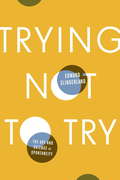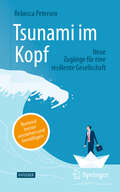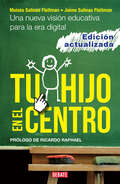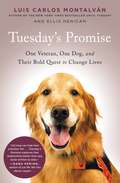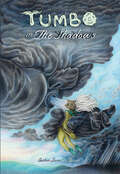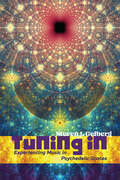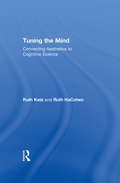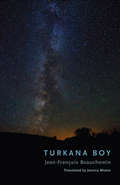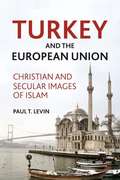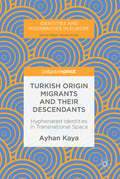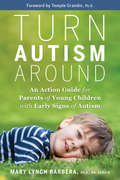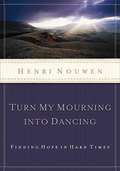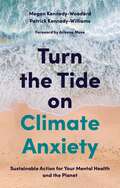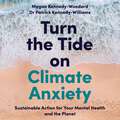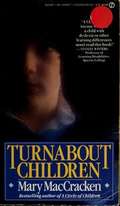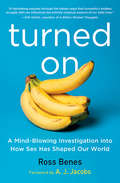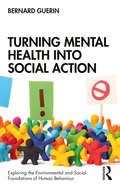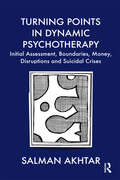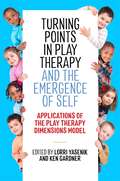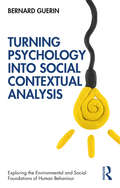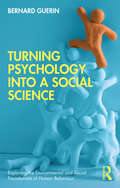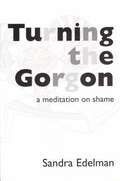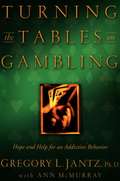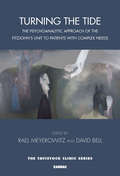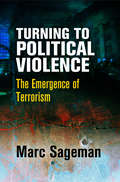- Table View
- List View
Trying Not to Try: Ancient China, Modern Science, and the Power of Spontaneity
by Edward SlingerlandA deeply original exploration of the power of spontaneity--an ancient Chinese ideal that cognitive scientists are only now beginning to understand--and why it is so essential to our well-being Why is it always hard to fall asleep the night before an important meeting? Or be charming and relaxed on a first date? What is it about a politician who seems wooden or a comedian whose jokes fall flat or an athlete who chokes? In all of these cases, striving seems to backfire. In Trying Not To Try, Edward Slingerland explains why we find spontaneity so elusive, and shows how early Chinese thought points the way to happier, more authentic lives. We've long been told that the way to achieve our goals is through careful reasoning and conscious effort. But recent research suggests that many aspects of a satisfying life, like happiness and spontaneity, are best pursued indirectly. The early Chinese philosophers knew this, and they wrote extensively about an effortless way of being in the world, which they called wu-wei (ooo-way). They believed it was the source of all success in life, and they developed various strategies for getting it and hanging on to it. With clarity and wit, Slingerland introduces us to these thinkers and the marvelous characters in their texts, from the butcher whose blade glides effortlessly through an ox to the wood carver who sees his sculpture simply emerge from a solid block. Slingerland uncovers a direct line from wu-wei to the Force in Star Wars, explains why wu-wei is more powerful than flow, and tells us what it all means for getting a date. He also shows how new research reveals what's happening in the brain when we're in a state of wu-wei--why it makes us happy and effective and trustworthy, and how it might have even made civilization possible. Through stories of mythical creatures and drunken cart riders, jazz musicians and Japanese motorcycle gangs, Slingerland effortlessly blends Eastern thought and cutting-edge science to show us how we can live more fulfilling lives. Trying Not To Try is mind-expanding and deeply pleasurable, the perfect antidote to our striving modern culture.From the Hardcover edition.
Tsunami im Kopf – Burnout besser verstehen und bewältigen: Neue Zugänge für eine resiliente Gesellschaft
by Rebecca PetersenDie Burnout-Erkrankung ist, insbesondere im Schulwesen, nach wie vor ein aktuelles und gesellschaftsrelevantes Thema, über das kaum gesprochen wird. Es ist, je nachdem mit viel Scham- und Schuldgefühlen behaftet. Jeder hat ein eigenes Bild von einer Burnout-Erkrankung - doch entspricht dieses tatsächlich der Wirklichkeit? Und wenn ja, warum trifft es dann so viele Menschen scheinbar unbemerkt? Diesen Umstand möchte die Autorin mit ihrem Buch und den darin enthaltenen Zugängen für Organisationen, Teams, Führungskräfte, BeraterInnen, aber auch Betroffene und deren Familien und Freunde ändern und eine neue Sensibilität für gesellschaftliche Verantwortung schaffen. Sie baut damit eine Brücke zu einer neuen Sicht auf Resilienz und Gesundheit und liefert dadurch einen aktiven Beitrag zur Prävention und Aufklärung. Ihr Buch schafft Zugang und Leichtigkeit für ein ernstzunehmendes Thema und ermöglicht dadurch einen offenen, gesunden Umgang mit einer vielschichtigen, heimtückischen und lebensverändernden Erkrankung.
Tu hijo en el centro: Una nueva visión educativa para la era digital
by Moisés Salinas FleitmanLa economía, la sociedad y la cultura del siglo XXI son radicalmente diferentes a aquellas del siglo pasado gracias a internet y específicamente a las redes sociales. Sin embargo, el salón de clases y los métodos pedagógicos siguen siendo esencialmente los mismos. ¿En qué falla la educación de hoy en día en México que no responde a las necesidades de nuestra era? En el marco de un sistema educativo en crisis, con un modelo anticuado y un sindicalismo opaco, la presente obra constituye un llamado urgente para analizar sus fallas y buscar alternativas de solución. La clave, de acuerdo con la investigación de Moisés Salinas Fleitman y Jaime Salinas Fleitman, se halla en la implementación de un modelo educativo constructivista, centrado en el estudiante, en el cual el alumno aprenda de manera crítica y creativa. De esta forma descubrirá cómo participar en la transformación de su mundo: una educación apropiada a las exigencias científicas y tecnológicas del siglo XXI. "Los hermanos Salinas Fleitman nos entregan un texto bien reflexionado sobre los desafíos educativos que enfrenta la escuela mexicana. Su conocimiento sobre el tema es amplio y su capacidad para compartirlo es generosa." Ricardo Raphael "Este libro nos demuestra por qué la escuela debe ser más que un lugar donde se transmiten conocimientos; ahí los niños deben desarrollar su máximo potencial a fin de ser mejores seres humanos, y así tener una mejor sociedad. Se trata de una lectura obligada para todos los padres interesados en la educación de sus hijos." Leo Zuckermann
Tuesday's Promise: One Veteran, One Dog, and Their Bold Quest to Change Lives
by Ellis Henican Luis Carlos MontalvanFollowing the success of his New York Times bestseller, Until Tuesday, Iraq War veteran Luis Carlos Montalván took to the road with his beloved Golden Retriever service dog, Tuesday, to advocate for America's wounded warriors and for each other. Luis's first book sparked a national conversation about service dogs and PTSD. In this spectacular new memoir, he and Tuesday brought their healing mission to the next level, showing how these beautifully trained animals can assist soldiers, veterans, and many others with disabilities. They rescued a forgotten Tuskegee airman, battled obstinate VA bureaucrats, and provided solace to troubled war heroes coast-to-coast. Everywhere these two went, they highlighted the miraculous talents of service dogs. As Luis and Tuesday celebrated exhilarating victories, a grave obstacle threatened to derail their life-saving campaign: though Luis had made great progress battling his own PTSD, his physical wounds left him wheelchair-bound. He was forced to decide whether to amputate his leg and carry on with a bionic prosthesis. Even as he struggled with this dramatic decision, he and ten-year-old Tuesday prepared to welcome a female Golden Retriever puppy to their all-male pack. As this stirring memoir neared publication, Luis Montalván took his own life in December 2016, another terrible tragedy of the invisible wounds of war. This book is his last letter of love to his best friend, Tuesday, and to veterans, readers, friends, and fellow dog lovers everywhere. Never more timely than now, TUESDAY'S PROMISE is an inspiring story of love, service, teamwork, and the remarkable bond between humans and canines.
Tumbo in The Shadows
by Esther Samuels-DavisHeartfelt and fantasyful, Tumbo in The Shadows forges a path through the uncharted territory of self-rediscovery. After his identity goes up in smoke, Tumbo must learn how to harness the spark left inside, feeling his way out of melancholy before it becomes him. A lighthearted journey through the shadowy depths of the soul, this modern fairytale explores and questions the meaning of finding life's purpose.
Tuning In: Experiencing Music in Psychedelic States
by Steven J. GelbergThe first authoritative study of the important role of music in psychedelic use and the ways in which psychedelics provide unprecedented access to the deeper mysteries of music.Tuning In is the first authoritative study of a subject that is of wide and growing importance within the current psychedelic renaissance: the role and experience of music in personal growth and healing via psychedelics. The book brings together the best insights and creative musings on the subject from respected figures within the psychedelic community. Going back several decades (and beyond), this book includes first-hand testimony from numerous "trip reports," along with relevant insights from psychologists, scientists, philosophers, scholars of religion, musicologists, musicians, and mystics. Tuning In takes an experiential approach to understanding the unique synergy between psychedelic states and music: how music profoundly supports and enhances psychedelic sessions while psychedelic states provide a unique doorway into the inner mysteries of music. Author Steven J. Gelberg includes helpful guidance in assessing and choosing music appropriate for psychedelic sessions, along with links to curated music playlists.
Tuning the Mind: Connecting Aesthetics to Cognitive Science
by Ruth HaCohenStarting from the late Renaissance, efforts to make vocal music more expressive heightened the power of words, which, in turn, gave birth to the modern semantics of musical expression. As the skepticism of seventeenth-century science divorced the acoustic properties from the metaphysical qualities of music, the door was opened to dicern the rich links between musical perception and varied mental faculties. In Tuning the Mind, Ruth Katz and Ruth HaCohen trace how eighteenth century theoreticians of music examined anew the role of the arts within a general theory of knowledge.As the authors note, the differences between the physical and emotional dimensions of music stimulated novel conceptions and empirical inquiries into the old aesthetic queries. Tracing this development, their opening chapter deals with seventeenth-century epistemological issues concerning the artistic qualities of music. Katz and HaCohen show that painting and literature displayed a comparable tendency toward "musicalization," whereby the dynamic of forms-the modalities specific to each artistic medium-rather than subject matter was believed to determine expression. Katz and HaCohen explore the ambiguities inherent in idealization of an art form whose mimetic function has always been problematic. They discuss the major outlines of this development, from Descartes to Vico through Condillac. Particular emphasis is placed on eighteenth-century British thinkers, from Shaftesbury to Adam Smith, who perceived these problems in their full complexity. They also explore how the French and the Germans dealt differently with questions that preoccupied the British, each nation in accordance with their own past tradition and tendencies. The concluding chapter summarizes the parallel development of abstract art and basic hypotheses concerning the mind and explores basic theoretical questions pertaining to the relationship between perception and cognition.In addressing some of the most complex problems in musical aesthetics, Katz and HaCohen provide a unique historical perspective on the ways their art creates and develops coherent worlds, and, in so doing, contribute to our understanding of the workings of the mind.
Turkana Boy
by Jessica Moore Jean-François BeaucheminIn this contemplative novel-poem, Jean-François Beauchemin invites us to share in the inner world of the grieving Mr. Bartolomé, who, following the mysterious disappearance of his young son, wanders and wonders, seeking to transcend his pain by encountering something larger than himself. Continuously occupied by the memory of his lost son, Bartolomé's quest leads him from the city to the countryside and then to the edge of the ocean, where he marvels at the beauty of nature but cannot penetrate its mysteries.Through reference to the two-million-year-old "Turkana Boy," the fossilized remains of a boy found in 1984 near Lake Turkana, Kenya, Beauchemin addresses processes of memory and the long history of human evolution. Beauchemin's character Bartolomé sees in the lives of the boys-separated by nearly two million years-a kind of twin destiny. Has the passage of millennia changed the intensity of human feeling at the loss of blood relations? "Who knows what they had felt? Had the same emotions, those associated with incommensurable loss, broken their bodies, as they had his? Over and above morphological differences sculpted by the passage of millennia, was there something resembling a permanence of feeling, a sort of eternity for the murmuring of the heart, transmitted through the ages by the bonds of blood?"Turkana Boy offers a poignant examination of grieving and one man's search for understanding. This surrealist narrative is punctuated with magnificent musings on the world and startling questions about what it means to be alive.
Turkey and the European Union
by Paul T. LevinThis book carefully examines the historical roots of contemporary Western prejudices against both Muslims and Turks, and presents an original theory of collective identity as dramatic re-enactment as a means of understanding the remarkable persistence of medieval stereotypes.
Turkish Origin Migrants and Their Descendants: Hyphenated Identities in Transnational Space (Identities and Modernities in Europe)
by Ayhan KayaThis book analyses Muslim-origin immigrant communities in Europe, and the problematic nature of their labelling by both their home and host countries. The author challenges the ways in which both sending and receiving countries encapsulate these migrants within the religiously defined closed box of “Muslim” and/or “Islam”. Transcending binary oppositions of East and West, European and Muslim, local and newcomer, Kaya presents the multiple identities of Muslim-origin immigrants by interrogating the third space paradigm.Turkish Origin Migrants and Their Descendants analyses the complexity of the hyphenated identities of the Turkish-origin community with their intricate religious, ethnic, cultural, ideological and personal elements. This insight into the life-worlds of transnational individuals and local communities will be of interest to students and scholars of the social sciences, migration studies, and political science, especially those concerned with Islamization of radicalism, populism, and Islamophobia in a European context.
Turn Autism Around: An Action Guide for Parents of Young Children with Early Signs of Autism
by Mary Lynch BarberaThis is the first book of its kind that calls attention to an important fact: parents can make a tremendous impact on their child through behavioral practices taught at home. Dr. Barbera has created a tool kit that any parent can use to help remediate--and in some cases eliminate-some symptoms of autism and other developmental delays in young children, even in as little as 15 minutes a day.Developmental delays and signs of autism usually show up before 18 months of age, yet children are often not diagnosed until they are 4 or 5 years old. In Turn Autism Around, Dr. Mary Barbera explains why parents can't afford to worry and wait in long lines for evaluations and treatment while not knowing how to help their children. She empowers parents, caregivers, and early intervention professionals to regain hope and take back control with simple strategies to dramatically improve outcomes for their children.Dr. Barbera has created a new approach to teaching kids with developmental delays that uses the science of Applied Behavior Analysis (ABA) married with a positive, child-friendly methodology that any parent can use--whether or not their child has delays--to learn to teach communication skills, socialization strategies, as well as tackle sleep, eating, potty training, and behavior challenges in a positive, effective, and lasting way. Turn Autism Around is the first book of its kind that calls attention to an important fact: parents can make a tremendous impact on their child's development through behavioral practices taught at home, even in as little as 15 minutes a day. Her program shows these autism and developmental delays can be remediated, and in some cases, delays can be caught up altogether, if parents intervene while the child is young. This book is for parents of young children aged one-to-five years who are passionate about helping their child as well as learning how they can change the trajectory of their child's and family's life.
Turn My Mourning Into Dancing: MOVING THROUGH HARD TIMES WITH HOPE
by Henri NouwenWith touching examples drawn from his own experience and the lives of those he has served as a pastor, Henri Nouwen articulates five specific "movements" that provide both a model for living through grief and a summary of the gifts our suffering can bring us. In five simple but eloquent chapters, he shows how our hard times can move us.
Turn the Tide on Climate Anxiety: Sustainable Action for Your Mental Health and the Planet
by Megan Kennedy-Woodard Dr. Patrick Kennedy-WilliamsIt's hard to watch the news, scroll through social media, or listen to the radio without hearing or seeing something disturbing about the climate emergency. This can trigger all sorts of emotions: worry, anger, sadness, guilt, and even grief but also often over-looked positive emotions like motivation, connection, care, and abundance that support mental health and climate action for sustainable longevity.Written by psychologists with extensive experience in treating people with eco-anxiety, this book shows you how to harness these emotions, validate them, and transform them into positive action. It enables you to assess and understand your psychological responses to the climate crisis and move away from unhealthy defence mechanisms, such as denial and avoidance.Ultimately, it shows that the solution to both climate anxiety and the climate crisis is the same - action that is sustainable for you and for the planet - and empowers you to take steps towards this.
Turn the Tide on Climate Anxiety: Sustainable Action for Your Mental Health and the Planet
by Megan Kennedy-Woodard Dr. Patrick Kennedy-WilliamsHow to understand and manage your psychological responses to climate change to protect your mental health (and the planet).It's hard to watch the news, scroll through social media, or listen to the radio without hearing or seeing something disturbing about the climate emergency. This can trigger all sorts of emotions: worry, anger, sadness, guilt, and even grief but also often over-looked positive emotions like motivation, connection, care, and abundance that support mental health and climate action for sustainable longevity.Written by psychologists with extensive experience in treating people with eco-anxiety, this audiobook shows you how to harness these emotions, validate them, and transform them into positive action. It enables you to assess and understand your psychological responses to the climate crisis and move away from unhealthy defence mechanisms, such as denial and avoidance.Ultimately, it shows that the solution to both climate anxiety and the climate crisis is the same - action that is sustainable for you and for the planet - and empowers you to take steps towards this.(P) 2022 Jessica Kingsley Publishers
Turnabout Children: Overcoming Dyslexia and Other Learning Disabilities
by Mary MaccrackenAfter receiving her masters degree in special education, the author decides to go into private practice as a learning-disabilities specialist. In this book, she tells of five of the children she worked with, and the techniques she used to help each child overcome his or her unique set of difficulties.
Turned On: A Mind-blowing Investigation Into How Sex Has Shaped Our World
by A. J. Jacobs Ross BenesDo you think sex only shapes our lives in the bedroom? Think again.Your breakfast cereal. Your neighborhood's crime rate. Even your Amazon Prime account. Believe it or not, nearly every aspect of modern life has been shaped in some way by sex. In this fascinating journey through the human psyche, journalist Ross Benes digs deep into the hidden relationship between everyday human existence—including religion, politics, technology, and more—and our sexuality.Ranging from discussions of how the U.S. military inadvertently helped make San Francisco a mecca of gay culture to the original purpose of vibrators, Turned On is a revealing look at just how much sex shapes our society, and how debunking common myths and attitudes about sex can help us better understand what really influences human behavior as we continue to grapple with the wide-ranging effects our sexuality has on the world around us.
Turning Mental Health into Social Action (Exploring the Environmental and Social Foundations of Human Behaviour)
by Bernard GuerinThis book offers a refreshing new approach to mental health by showing how ‘mental health’ behaviours, lived experiences, and our interventions arise from our social worlds and not from our neurophysiology gone wrong. It is part of a trilogy which offers a new way of doing psychology focusing on people’s social and societal environments as determining their behaviour, rather than internal and individualistic attributions. ‘Mental health’ behaviours are carefully analysed as ordinary behaviours which have become exaggerated and chronic because of the bad life situations people are forced to endure, especially as children. This shifts mental health treatments away from the dominance of psychology and psychiatry to show that social action is needed because many of these bad life situations are produced by our modern society itself. By providing new ways for readers to rethink everything they thought they knew about mental health issues and how to change them, Bernard Guerin also explores how by changing our environmental contexts (our local, societal, and discursive worlds), we can improve mental health interventions. This book reframes ‘mental health’ into a much wider social context to show how societal structures restrict our opportunities and pathways to produce bad life situations, and how we can also learn from those who manage to deal with the very same bad life situations through crime, bullying, exploitation, and dropping out of mainstream society, rather than through the ‘mental health’ behaviours. By merging psychology and psychiatry into the social sciences, Guerin seeks to better understand how humans operate in their social, cultural, economic, patriarchal, discursive, and societal worlds, rather than being isolated inside their heads with a ‘faulty brain’, and this will provide fascinating reading for academics and students in psychology and the social sciences, and for counsellors and therapists.
Turning Points in Dynamic Psychotherapy: Initial Assessment, Boundaries, Money, Disruptions and Suicidal Crises
by Salman AkhtarThis book addresses five areas of difficulty in psychotherapy: initial assessment, boundaries, money, disruptions, and suicidal crises. It outlines the conceptual issues and the technical details of each of the concept in detail.
Turning Points in Play Therapy and the Emergence of Self: Applications of the Play Therapy Dimensions Model
by Ken Gardner Lorri YasenikEffective clinical practice requires a thorough understanding of how turning points surface in the play therapy process. These moments can indicate a change in a child's thought or behaviour. The play therapist is the facilitator of these moments and this book will provide guidance on how they can promote these moments.This edited collection demonstrates successful implementation of the author's proven Play Therapy Dimensions Model. Each chapter uses this framework, as well as other theories, to discuss the markers that can reflect shifts and growth in a child's development. Full of applied guidance, this book will prove to be invaluable for practitioners, instructors and students.
Turning Psychology into Social Contextual Analysis (Exploring the Environmental and Social Foundations of Human Behaviour)
by Bernard GuerinThis groundbreaking book shows how we can build a better understanding of people by merging psychology with the social sciences. It is part of a trilogy that offers a new way of doing psychology focusing on people’s social and societal environments as determining their behaviour, rather than internal and individualistic attributions. Putting the ‘social’ properly back into psychology, Bernard Guerin turns psychology inside out to offer a more integrated way of thinking about and researching people. Going back 60 years of psychology’s history to the ‘cognitive revolution’, Guerin argues that psychology made a mistake, and demonstrates in fascinating new ways how to instead fully contextualize the topics of psychology and merge with the social sciences. Covering perception, emotion, language, thinking, and social behaviour, the book seeks to guide readers to observe how behaviours are shaped by their social, cultural, economic, patriarchal, colonized, historical, and other contexts. Our brain, neurophysiology, and body are still involved as important interfaces, but human actions do not originate inside of people so we will never fi nd the answers in our neurophysiology. Replacing the internal origins of behaviour with external social contextual analyses, the book even argues that thinking is not done by you ‘in your head’ but arises from our external social, cultural, and discursive worlds. Offering a refreshing new approach to better understand how humans operate in their social, cultural, economic, discursive, and societal worlds, rather than inside their heads, and how we might have to rethink our approaches to neuropsychology as well, this is fascinating reading for students in psychology and the social sciences.
Turning Psychology into a Social Science (Exploring the Environmental and Social Foundations of Human Behaviour)
by Bernard GuerinThis radical book explores a new understanding of psychology based on human engagement with external contexts, rather than what goes on inside our heads. It is part of a trilogy that offers a new way of doing psychology, focusing on people’s social and societal environments as determining their behaviour, rather than internal and individualistic attributions. By showing that we engage directly with our complex social, political, economic, patriarchal, colonized, and cultural contexts and that what we do and think arises from this direct engagement with these external contexts, Bernard Guerin expertly demonstrates that Western ideas have systematically excluded the ‘social’ but that this is really where the major determinants of our behaviour arise. This book works through many human activities that psychology still treats as individualized and internal and shows their social and societal origins. These includes beliefs, the sense of self, the arts, religious behaviours, and the new and growing area of conservation psychology. The social structures found by sociology, anthropology and sociolinguistics are shown to shape most ‘individual’ human actions, and it is shown how the main points of Marxism and Indigenous knowledges can be better merged into this new and broader social science. Replacing the ‘internal’ attributions of causes with external contextual analyses based in the social sciences, this book is fascinating reading for academics and students in psychology and the social sciences, and provides exciting new ways to conceptualize and observe human actions in new ways and to resist the current individualistic thinking of ‘psychology’.
Turning the Gorgon: A Meditation on Shame
by Sandra EdelmanThe devastating humiliation of shame here receives an in-depth psychological study. Edelman draws from many fields beyond the clinical-classical scholarship, Jungian thought, mythology, philosophy and theology―to find meaning and eventually healing the paralysis of shame. Of central importance is the image of the hideous Gorgon worn on Athene's breastplate and the possibilities for understanding shame with the help of Athene. An exemplary and highly readable study of how gods and diseases connect.
Turning the Tables on Gambling: Hope and Help for Addictive Behavior
by Gregory L. JantzDon't Gamble with Your Future. Nearly two-thirds of the adult population in the United States gambled in the past year. For some, this represented a casual bet or a whimsical wager on winning the lottery. But for a significant and growing portion of the population, gambling isn't recreation-it's life. Many believe that Christians are unlikely to become enslaved by gambling. Yet research indicates that Christians are drawn to gambling at the same rate as others. In Turning the Tables on Gambling, you'll explore the answers to questions such as:* What is my risk of becoming addicted to gambling?* Is playing the lottery or making a casual wager harmless? * At what point does gambling become destructive?* If gambling is a problem for me or someone I know, what can I do?With solid insight, personal anecdotes, and practical help, Dr. Gregory Jantz describes why people of all ages and backgrounds are lured into gambling and how freedom form this destructive behavior can be found.INCLUDES GAMBLING PERSONALITY QUESTIONNAIRE!From the Trade Paperback edition.
Turning the Tide: The Psychoanalytic Approach of the Fitzjohn's Unit to Patients with Complex Needs
by Edna O'ShaughnessySince it was founded in 1920, the Tavistock Clinic has developed a wide range of developmental approaches to mental health which have been strongly influenced by the ideas of psychoanalysis. It has also adopted systemic family therapy as a theoretical model and a clinical approach to family problems. The Clinic is now the largest training institution in Britain for mental health, providing postgraduate and qualifying courses in social work, psychology, psychiatry, and child, adolescent, and adult psychotherapy, as well as in nursing and primary care. It trains about 1,700 students each year in over 60 courses. This important volume traces an impressive range of descriptions, all clinically based, of the work of the remarkable Fitzjohn's Unit, which has about 60 patients under its care at any one time. The book also evokes a clear sense of collective commitment, one that has lasted over seventeen years, since its beginnings as an experimental project that was set up by David Taylor in 2000.
Turning to Political Violence: The Emergence of Terrorism
by Marc SagemanWhat motivates those who commit violence in the name of political beliefs? Terrorism today is not solely the preserve of Islam, nor is it a new phenomenon. It emerges from social processes and conditions common to societies throughout modern history, and the story of its origins spans centuries, encompassing numerous radical and revolutionary movements.Marc Sageman is a forensic psychiatrist and government counterterrorism consultant whose bestselling books Understanding Terror Networks and Leaderless Jihad provide a detailed, damning corrective to commonplace yet simplistic notions of Islamist terrorism. In a comprehensive new book, Turning to Political Violence, Sageman examines the history and theory of political violence in the West. He excavates primary sources surrounding key instances of modern political violence, looking for patterns across a range of case studies spanning the French Revolution, through late nineteenth- and early twentieth-century revolutionaries and anarchists in Russia and the United States, to the assassination of Archduke Ferdinand and the start of World War I. In contrast to one-dimensional portraits of terrorist "monsters" offered by governments and media throughout history, these accounts offer complex and intricate portraits of individuals engaged in struggles with identity, injustice, and revenge who may be empowered by a sense of love and self-sacrifice.Arguing against easy assumptions that attribute terrorism to extremist ideology, and counter to mainstream academic explanations such as rational choice theory, Sageman develops a theoretical model based on the concept of social identity. His analysis focuses on the complex dynamic between the state and disaffected citizens that leads some to disillusionment and moral outrage—and a few to mass murder. Sageman's account offers a paradigm-shifting perspective on terrorism that yields counterintuitive implications for the ways liberal democracies can and should confront political violence.
